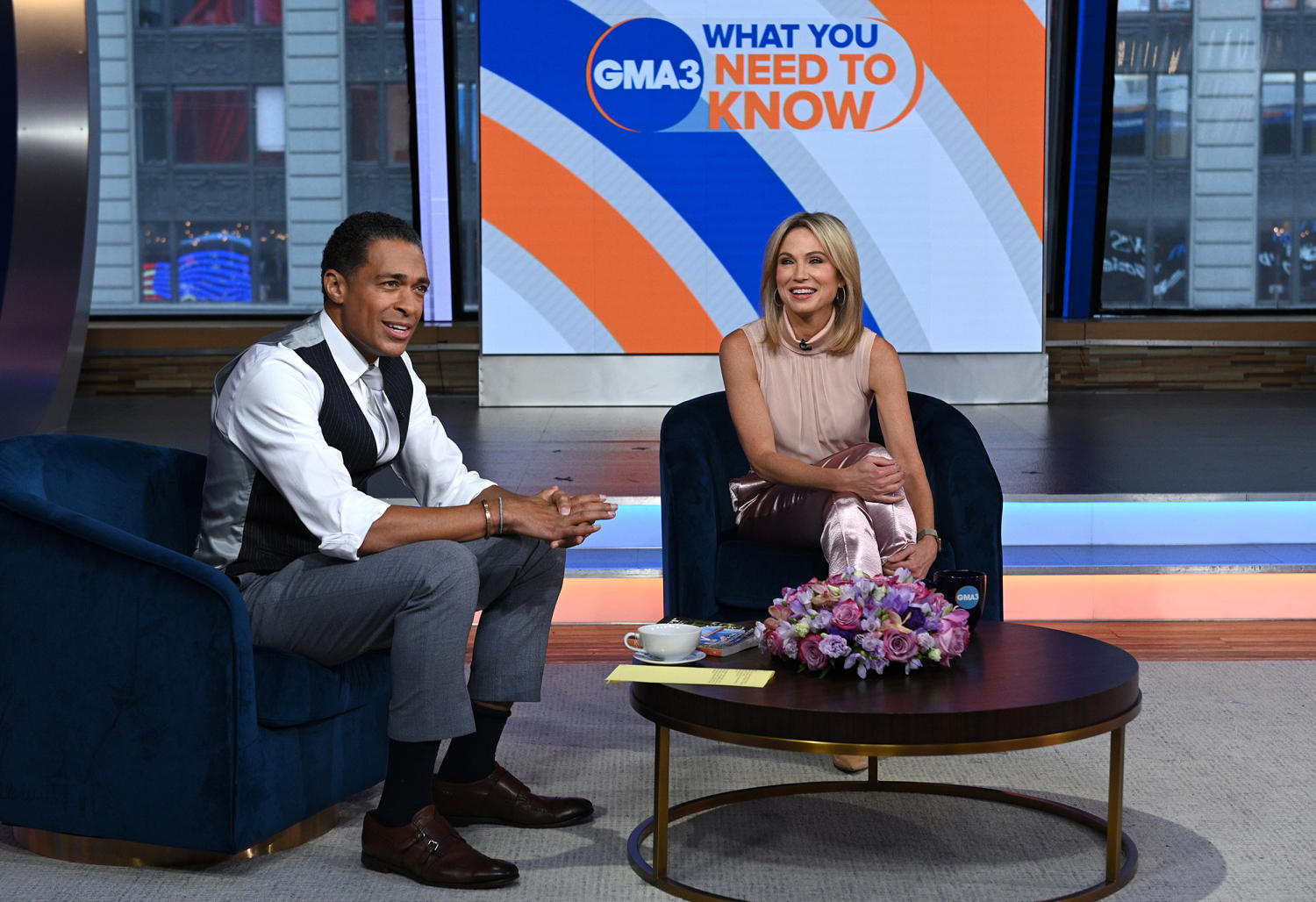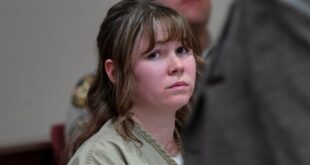[ad_1]

Former “GMA3” co-anchors T.J. Holmes and Amy Robach opened up for the first time at length about their controversial relationship and exit from ABC News.
Holmes, 46, described the pair as “the folks who lost the jobs we love because we love each other.”
“There’s a lot been said about us,” he said on the Tuesday debut of their “Amy and T.J. Podcast.”
Robach said she was nervous about sharing their story.
“Because we haven’t spoken. We haven’t said anything and other people have had our story, they’ve told our narrative,” she said. “And I shouldn’t say ‘our,’ they told a narrative. It isn’t our narrative. This is the first time that we actually get to say what happened and where we are today.”
In January, a spokesperson for ABC News said Holmes and Robach were no longer with the network following a Daily Mail article published on Nov. 30, 2022 that included pictures of them holding hands in a car and spending time together. The story quickly sparked allegations that Robach and Holmes were having an affair — a claim they denied several times on their podcast.
“To be clear, we were outed as being in a relationship,” Holmes said. “But everyone else thought we were being outed as adulterers, being outed as cheating on our spouses and it wasn’t the case.”
Robach said she and her ex husband, Andrew Shue, split in the summer of 2022.
“Everyone in my tight circle knew I was getting divorced,” she said. “I took my ring off [in] early August. It was very clear to anyone who knew me that I was in the middle of a divorce.”
On Holmes’ end, no one, including his mother, had initially known about his split from Marilee Fiebig. He said looking back, he would have handled the situation differently.
“We shouldn’t have allowed, and I could say that in hindsight, for folks to find out about our relationship before they found out about our divorces,” he said.
Robach said they both wanted to wait to tell people about the relationship because they both wanted their divorces to be finalized.
“We thought we were protecting our children and our families, and we thought we had time,” she said. “And we thought we had a right to privacy. And maybe that was foolish and silly.”
The couple said they had been close friends for 8 years. Holmes said that their friendship was so close that people would call them “brother, sister almost, peas in a pod and all this stuff.”
“To the point where when people would accuse us, I shouldn’t say accuse, when they would make any kind of joke about what’s going on with you two da da da, we would almost go, ‘ew, that’s like my sister, ugh, gross,” he continued.
“That is actually true,” Robach said laughing.
“But even now I catch you every once in a while, you’ll say ‘honey’ or something and I’d say, ‘this is so weird.’ Because we were friends for so long. I mean, truly, genuinely, friends for a long long time,” he continued.
He went on to explain that they became close over the years and Robach became his rock while he went through some “troubles.”
“But I still didn’t see this coming,” he added.
During the podcast, which was launched exactly one year after ABC pulled them from air, the two discussed the challenges they faced since their romance was thrust into the headlines.
Robach described the past 12 months as the “year of hell.” Holmes said he had to handle it alone in an apartment he moved into following his split from Fiebig. Robach said things got so bad for Holmes that she had to do a “wellness check” on him after he sent alarming text messages.
“I texted back and I said, ‘You’re scaring me. Please tell me you’re OK.’ No response. I call. He doesn’t answer. I FaceTime him. He doesn’t answer his FaceTime,” she recalled. “He’s not answering anybody.”
She said when she got to his apartment, Holmes was “splayed out” on the bed.
“And I ran to you and you didn’t move,” she said. “I was so afraid.”
Holmes said he remembers “pounding vodka” that day and taking edibles.
“That combination was terrifying,” Robach said.
The couple ended their podcast by saying they were glad they were able to share their story.
“It is cathartic and incredible to be able to start to tell it and live it. We have not felt comfortable holding our heads up high walking down the street, at least we didn’t initially, but we’ve started to now. … We’re only hoping we’ll create a new way forward where we can at least say, ‘here’s what actually happened and here’s what we wish we would have been done better and differently.'”
 FARRATA NEWS Online News Portal
FARRATA NEWS Online News Portal






